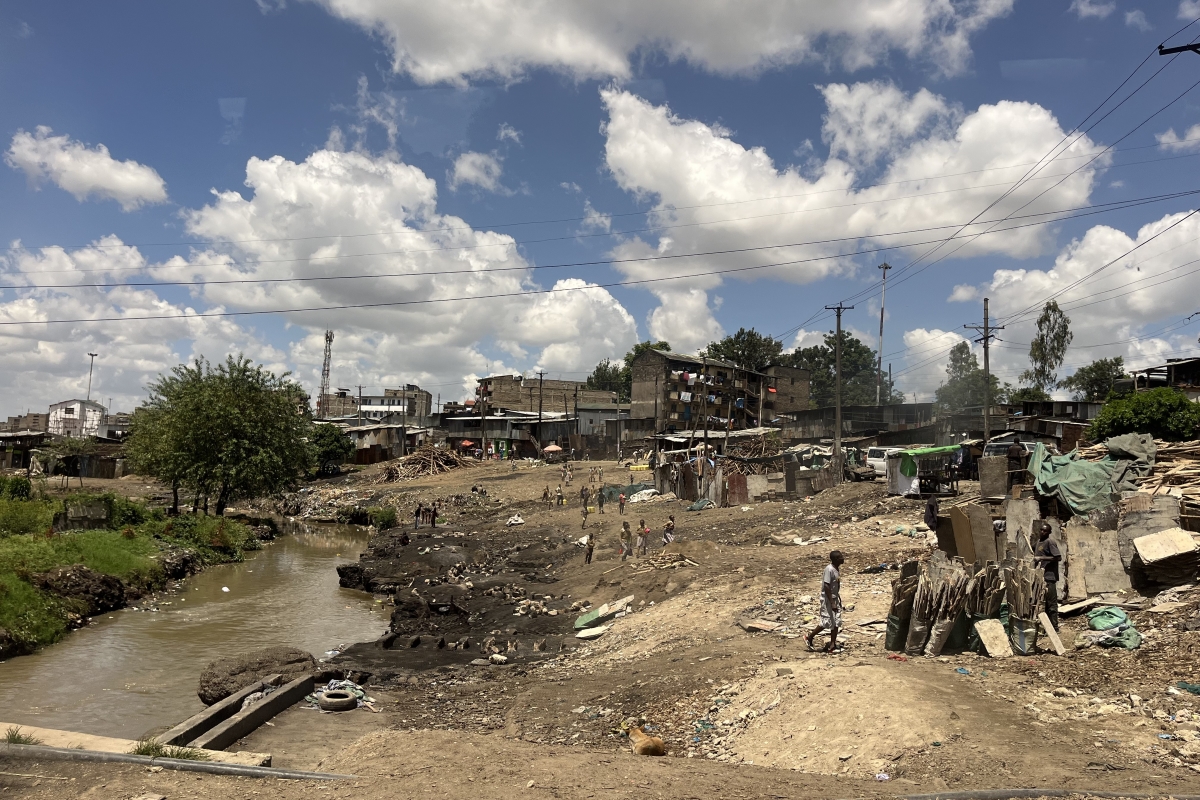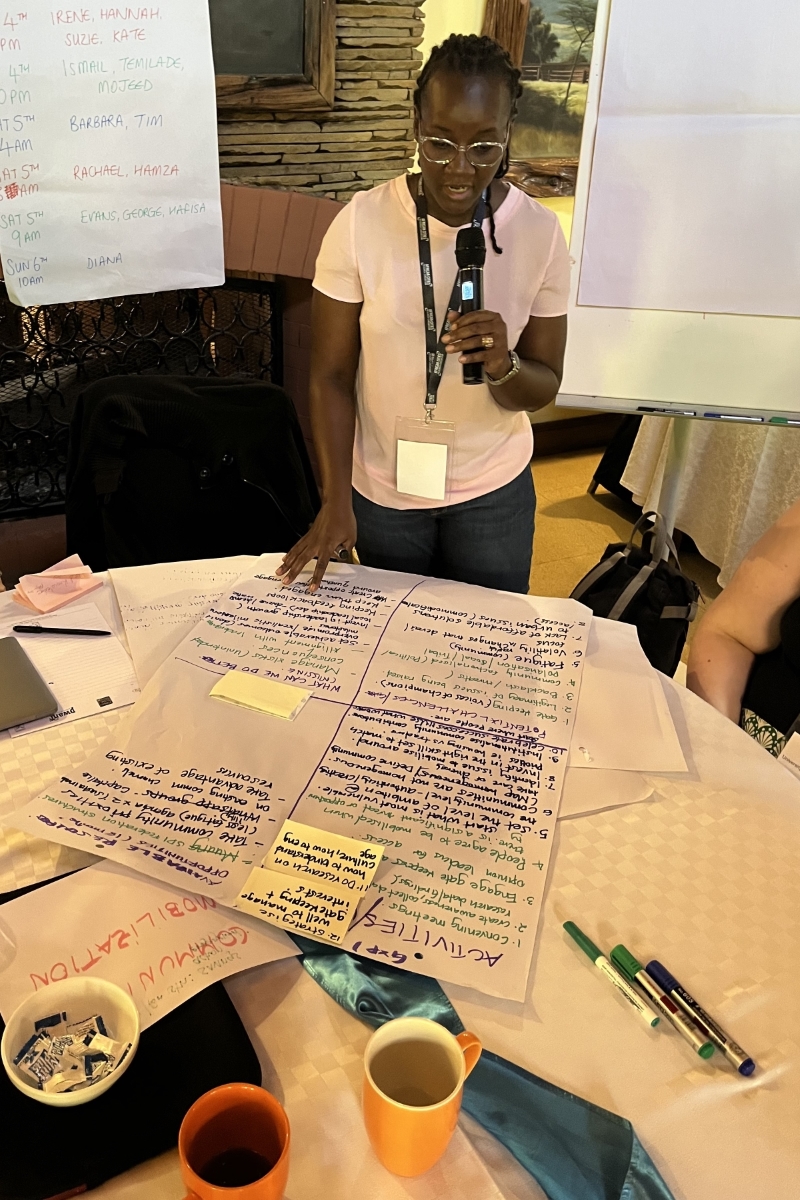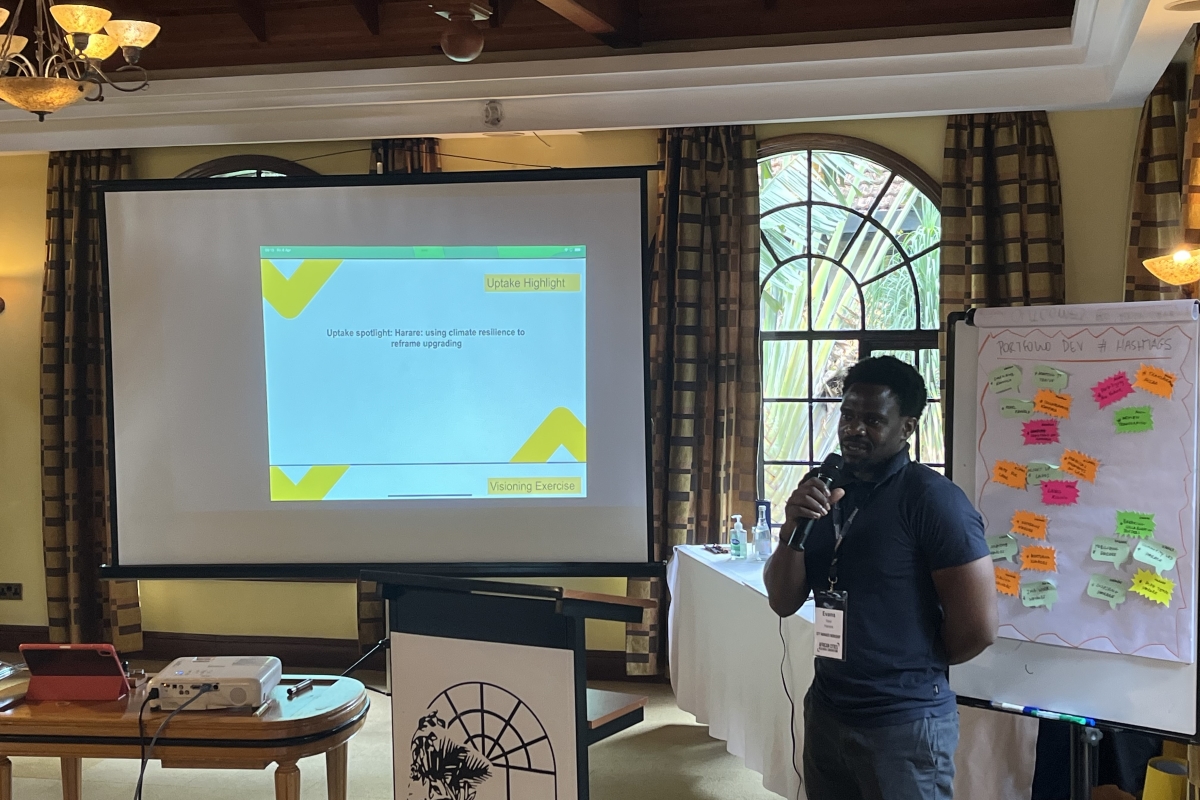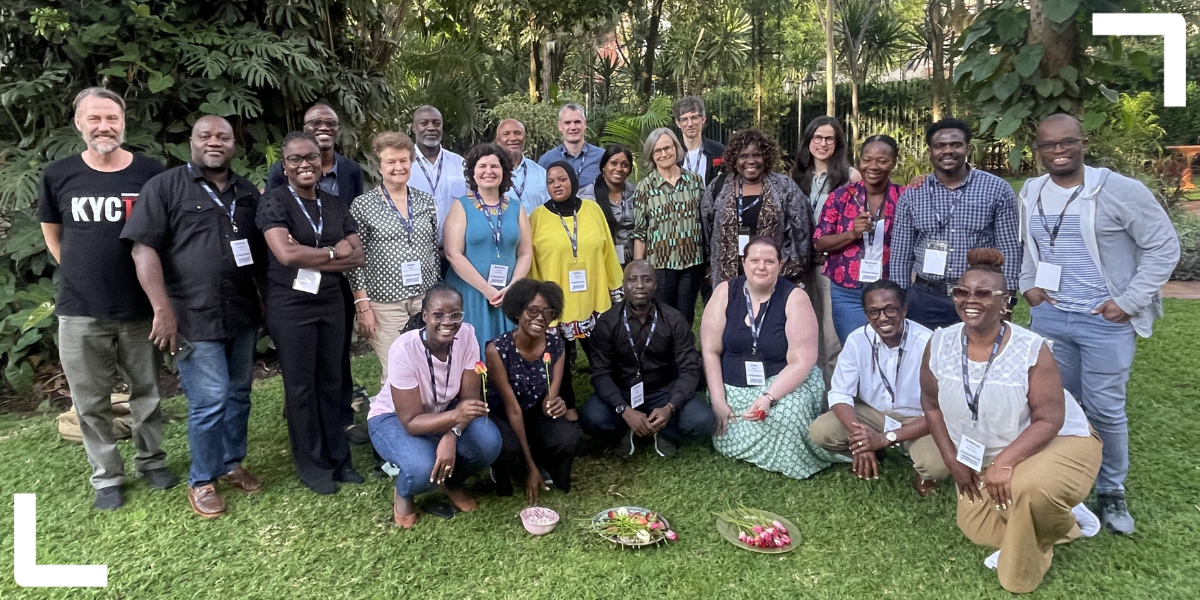By Hannah van Rooyen and Chris Jordan
ACRC’s city managers, uptake officers and members of the senior management and uptake teams gathered in Nairobi last week for the third city managers meeting of the consortium’s implementation phase.
Running from 1 to 4 April 2025, a visit to the informal settlement of Mathare preceded three days of meetings, which focused on action research portfolio development and advancing research uptake at the project, city and programme level. We were very grateful for expert facilitation from Barbara Oliveira and Kalekye Mumo, who were pivotal in ensuring rich, engaging discussions – and that we stayed on track!

Insights from the waste management community initiative in Mathare
We were delighted to be invited to the informal settlement of Mathare, to hear from the researchers and waste workers involved in the Nairobi team’s waste management community knowledge project, led by Wavinya Mutua.
The team presented the work they have conducted so far, including their workplan creation, data collection methodology, mapping of dumpsites and waste holding grounds around the settlement, and insights into the waste management value chain. It was fascinating to see first-hand the invaluable contribution of community knowledge and to hear what the research has uncovered so far. Initial conversations with Nairobi County officials suggest the insights of the waste workers may have the power to improve local regulations.





Day 1: Action research portfolio development
Our first official day of meetings focused on the action research projects underway across all five of our implementation cities: Accra, Harare, Kampala, Lagos and Nairobi.
Starting with an introduction from Diana Mitlin and a warm welcome from ACRC’s Nairobi city manager Jack Makau, updates from all city managers followed, as they talked through the key milestones the action research portfolios have reached so far. This process brought up a number of shared experiences and key topics, which participants were then invited to reflect on and share for further discussion.
In the afternoon, the group split off into smaller discussions, centred around the key topics identified in the morning. Ranging from navigating difficult political landscapes, to ways of integrating research insights into action research projects, to how to use findings to influence policy and programming, plenty of lessons and experiences were shared across the different city teams and roles.
The day ended with some self-reflection, with all participants invited to consider what they had learned for themselves during the day’s sessions.




Day 2: Scaling impact and driving change
The second day began with a focus on the development of action research project portfolios in the five implementation cities. Dividing up into groups, representatives from each of the cities told their stories of portfolio development so far.
Next, the city managers shared their perspectives on turning localised action research projects into city-level initiatives and ways to achieve this. Nairobi’s Jack Makau explained how insights from the waste management community knowledge initiative in Mathare has the potential to impact how waste is handled across the entire city, stressing the importance of presenting findings within the right circles.
Building on this, Accra’s Rachael Annan noted the need to build evidence to take to authorities, Kampala’s Hafisa Namuli talked about why having a sense of ownership over the action research initiatives is key to scaling up, Harare’s George Masimba highlighted preparedness for challenges and political awareness as critical requirements, and Lagos’s Temilade Sesan pointed to the power of reform coalitions in advocating for change, using evidence and capabilities generated over time.
Shifting the focus over to research uptake – or ensuring that the knowledge we generate is used – Diana Mitlin explored why this is such a central part of ACRC’s integrated approach. She highlighted how academia is only one piece of the puzzle and that we need to move beyond the constraints of formal knowledge to recognise the value of other forms of evidence and experience.

Passing over to Chris Jordan and Ismail Ibraheem to present on ACRC’s uptake approach and our uptake journey so far, participants were invited to reflect on three things: what uptake looks like to us, what has worked, and what has proved challenging. Many commonalities cropped up, including around how to engage different stakeholders and the challenges of framing research in engaging ways without misrepresenting the evidence.
We then heard from Nairobi’s uptake officer Jerry Okal on their city strategy and some of the highlights from the uptake work so far. He was followed by Accra’s Hamza Bawa, who shared experiences around more non-traditional means of engagement that have been successful in the city.
The final breakout session of the day saw us split out into four groups and rotate around the four key outcomes of ACRC’s Theory of Change: reform coalitions, elite engagement, community mobilisation and state capacity. Participants shared examples from their cities, highlighting challenges and gaps, as well as potential opportunities.



Day 3: Action plans for inclusive transformation
The third and final day ended on a high – as city managers, uptake officers and the senior management team came together with community researchers from Accra, Kampala, Harare, Lagos and Nairobi.
Better understanding the potential of community knowledge is a key focus for ACRC and one which we think will significantly boost our impact.
After exploring uptake strategies on the previous day, we focused on developing action plans for different cities to ensure we’re more than the sum of our parts at project, city, national and programme levels.
Evans Banana got the day off to an inspiring start, outlining how the Harare team had taken advantage of opportunities around climate resilience to push for more secure communities.

This was followed by insights from Kampala from Suzie Muwanga, exploring how the team had effectively navigated engagements with city and national authorities. Mojeed Alabi rounded up the day by highlighting a series of media engagements that have helped the Lagos team gain real traction.



While we were in Nairobi, it was also great to meet up with Kenya’s Housing Secretary, Said Athman, FCDO representatives Emmeline Skinner and Mark Povey, as well as our Consortium Advisory Group Chair, Hastings Chikoko. We look forward to taking forward all the ideas and opportunities that were discussed.
Although lots of work remains to achieve our ambitious aims in cities, we all left the workshop with a renewed sense of common purpose, plenty of ideas to trial and a collective commitment to push forward locally led, inclusive transformations for African cities. Watch this space for more updates on our progress…


Photo credits: Hannah van Rooyen, Chris Jordan, James Tayler
Note: This article presents the views of the authors featured and does not necessarily represent the views of the African Cities Research Consortium as a whole.
The African Cities blog is licensed under Creative Commons Attribution-NonCommercial-NoDerivatives 4.0 International (CC BY-NC-ND 4.0), which means you are welcome to repost this content as long as you provide full credit and a link to this original post.


